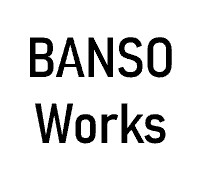How to Say 'Thank You' in Japanese: Essential Tips for Using 'Arigatou' in Japan

When expressing gratitude in Japanese, the most common phrase you'll encounter is "ありがとう" (arigatou).
Everyone already knows the Japanese word 'Arigatou,' but using other expressions of gratitude will undoubtedly draw attention from Japanese people. Moreover, it's not always appropriate to just use 'Arigatou'—the situation also matters. Let's explain this in more detail.
This simple word "Arigatou"carries various nuances and cultural significance that are essential to understand for effective communication in Japan. In this blog, we’ll explore the different ways to say "thank you" in Japanese and the cultural etiquette surrounding its use.
Recommended Book
The Basics: ありがとう (Arigatou)

"ありがとう" (arigatou) is the informal way to say "thank you." It’s a versatile expression suitable for casual situations and can be used among friends, family, and colleagues of similar rank.
For a more formal touch, you can say "ありがとうございます" (arigatou gozaimasu). The addition of "ございます" (gozaimasu) adds a layer of politeness, making it appropriate for use with strangers, superiors, or in professional settings.Among Japanese people, 'Arigatou' is used between close friends, while 'Arigatougozaimasu' is used in business or when addressing someone of higher status. When a foreigner uses it with a Japanese person, a simple 'Arigatou' is perfectly fine.
Expressing Deeper Gratitude
When you want to express even deeper gratitude, perhaps for a significant favor or kindness, you can use "本当にありがとうございます" (hontou ni arigatou gozaimasu) which translates to "Thank you very much." Another phrase is "心から感謝If you can use these two expressions of gratitude, Japanese people might think of you as an advanced Japanese speaker.します" (kokoro kara kansha shimasu), meaning "I thank you from the bottom of my heart."
Cultural Nuances and Etiquette

Cultural Nuances and Etiquette
- Hierarchy and Politeness Japanese culture places great importance on hierarchy and social status. When expressing gratitude, it’s crucial to match the level of politeness to the relationship and context. Using a casual "ありがとう" with a superior or in a formal situation can be seen as disrespectful. Conversely, using "ありがとうございます" in a casual setting might come off as overly formal. By the way, adding 'ne' to 'arigatou' (ありがとうね)when addressing younger people or subordinates makes the expression more friendly and softer.
- Body Language In addition to words, body language plays a significant role in conveying gratitude. A slight bow is customary when saying "thank you." The depth and duration of the bow can vary depending on the level of gratitude and the social standing of the person you’re thanking. For deeper gratitude, a deeper and longer bow is appropriate.
- Situational Appropriateness Understanding when and where to use "thank you" is also important. In some cases, overusing "ありがとう" can be perceived as insincere or unnecessary. For example, thanking someone excessively for a routine action or minor favor might make them uncomfortable. Conversely, failing to express gratitude when it’s expected can be seen as rude.
- Expressions of Humility Japanese culture values humility, and expressions of gratitude often include a sense of humility from the speaker. Phrases like "お世話になりました" (osewa ni narimashita, "Thank you for your care") or "ご迷惑をおかけしました" (gomeiwaku o okake shimashita, "I apologize for any trouble I may have caused") are commonly used to show appreciation while acknowledging the other person’s effort or inconvenience.
- Written Gratitude When expressing thanks in writing, such as in a thank-you note or email, it’s important to use polite language and proper form. Starting the message with a respectful greeting and ending with a polite closing is standard practice. Including specific details about what you’re thankful for can make your message more heartfelt and personal.
Common Mistakes to Avoid

- Using the Wrong Level of Politeness One of the most common mistakes is using the incorrect level of politeness for the situation. Always consider the relationship and context before choosing your words.As mentioned earlier, using 'Arigato!' with someone of higher status can come across as somewhat rude to Japanese people
- Ignoring Non-verbal Cues Failing to incorporate appropriate body language, like bowing, can make your gratitude seem less sincere.Of course, foreigners who don’t bow will not offend Japanese people, so you can be assured of that. Recently, many Japanese people don’t bow as much, so it's okay if you don’t worry too much about it
- Overusing or Underusing "Thank You" Striking a balance is key. Overusing "ありがとう" can seem insincere, while underusing it can come off as rude.
- Forgetting Cultural Context Remember that what might be considered a simple "thank you" in your culture could have different implications in Japan. Always be mindful of the cultural context.
Conclusion
In conclusion, expressing gratitude in Japan involves more than just saying "ありがとう." It requires an understanding of social hierarchies, appropriate levels of politeness, and the cultural significance of body language and situational appropriateness. By keeping these nuances in mind, you can ensure that your expressions of thanks are both heartfelt and culturally respectful.
Writer and Editor: Lio, Japanese career consultant

Lio is a nationally licensed career consultant in Japan. He holds the Level 1 SEO Certification and is a certified web analyst. Born in Japan, he has lived in four countries, gaining an understanding of various cultures while being well-versed in Japan's unique work culture and language. With 25 years of experience in HR at both Japanese and multinational companies, he leverages his expertise to support individuals seeking to work in Japan




